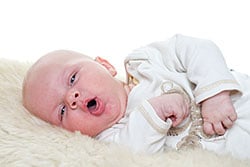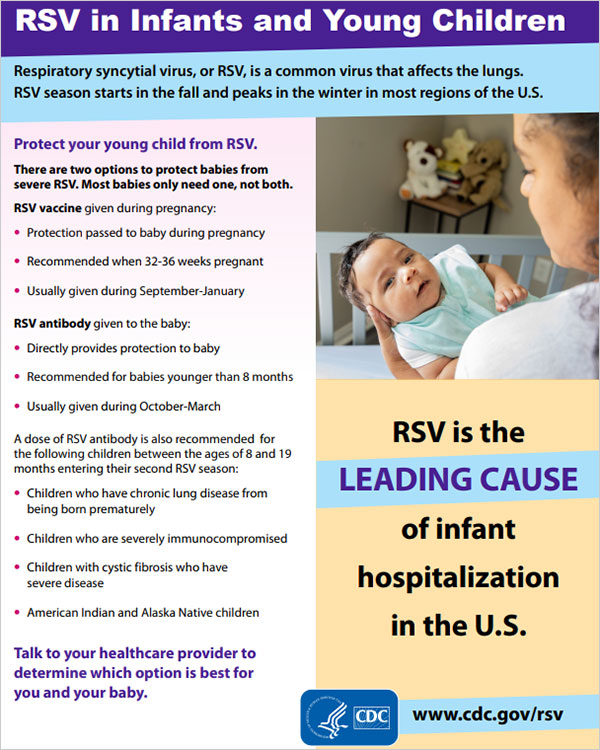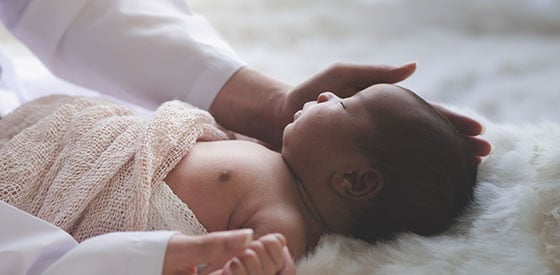What to know
- RSV can be dangerous for infants and some young children.
- RSV is the leading cause of infant hospitalization in the U.S.
- Immunizations can protect babies from getting very sick from RSV.

Overview
RSV can be dangerous for infants and some young children. Each year in the United States, an estimated 58,000–80,000 children younger than 5 years are hospitalized due to RSV.
Children at greatest risk for severe illness from RSV include:
- Infants and young children (the younger the age, the higher the risk)
- American Indian and Alaska Native children
- Children born prematurely
- Children with chronic lung disease or congenital (present from birth) heart disease
- Children with weakened immune systems
- Children with severe cystic fibrosis
- Children who have neuromuscular disorders, especially those who have difficulty swallowing or clearing mucus secretions
Did you know?
Symptoms in infants and young children
RSV may not be severe when it first starts. However, it can become more severe a few days into the illness. Early symptoms of RSV may include:
- Runny nose
- Eating or drinking less
- Cough, which may progress to wheezing or difficulty breathing
RSV in very young Infants
Infants who get RSV almost always show symptoms. This is different from adults, who can sometimes get RSV and not have any symptoms. In very young infants (less than 6 months old), the symptoms of RSV may include:
- Irritability
- Decreased activity
- Eating or drinking less
- Apnea (pauses in breathing for more than 10 seconds)
Many infants will not have a fever with RSV infection.
Severe RSV
Most of the time RSV causes a mild, cold-like illness, but it can also cause severe illness such as:
- Bronchiolitis (inflammation of the small airways in the lung)
- Pneumonia (infection of the lungs)
Two to three out of every 100 infants under 6 months are hospitalized with RSV every year. Those who are hospitalized may require oxygen, IV fluids (if they aren't eating and drinking), and mechanical ventilation (a machine to help with breathing). Most improve with this type of supportive care and are discharged in a few days.
When to seek emergency care
Immunizations to protect infants from severe RSV
CDC recommends you use one of these two tools to protect your baby from getting very sick with RSV:
- An RSV vaccine given to the mother during pregnancy
- An RSV immunization given to infants and some older babies
Most infants will not need both.


